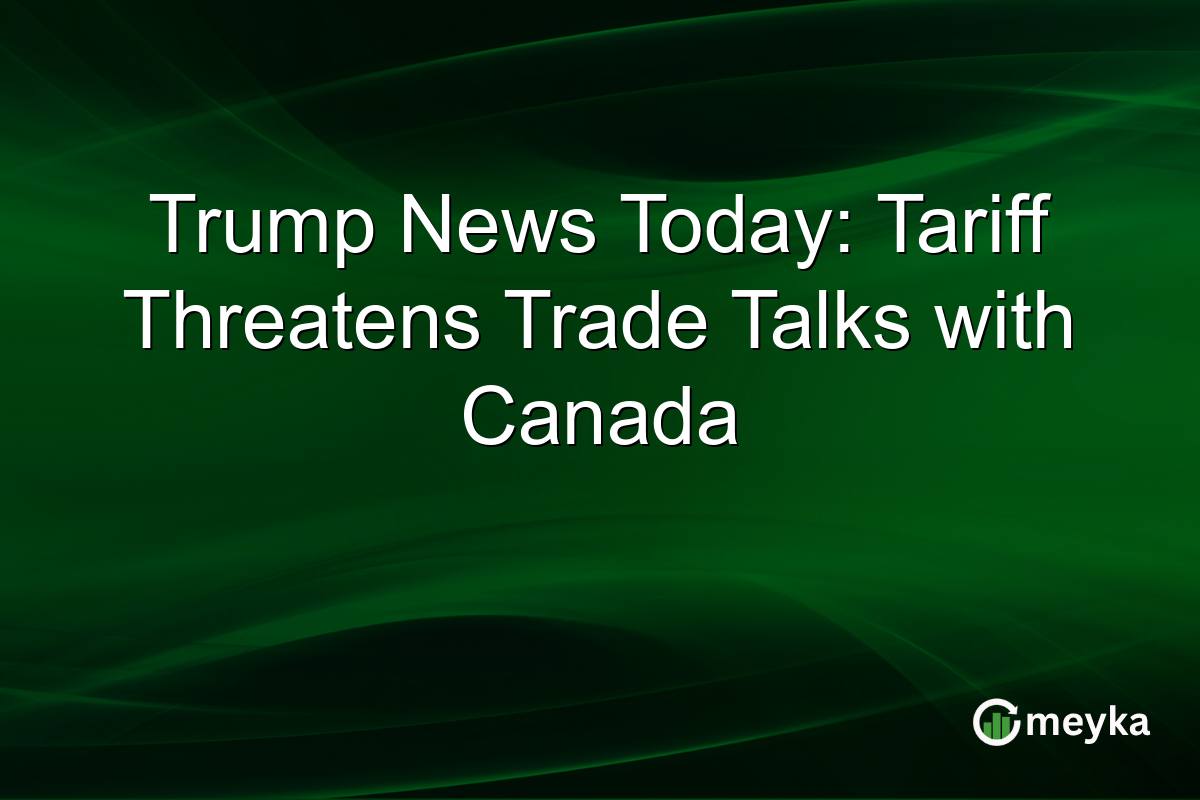Trump News Today: Tariff Threatens Trade Talks with Canada
Former President Donald Trump recently announced a 10% tariff increase on Canadian imports. This sudden move has sparked significant reactions, especially from political figures such as New York Governor Kathy Hochul. The tariff increase is poised to influence ongoing trade talks between the U.S. and Canada, potentially straining economic ties. As we unravel the implications of this decision, let’s delve into what this means for both nations and their economic future.
The Tariff Increase and Its Economic Impact
The decision to impose a 10% tariff on Canadian imports targets a range of goods, escalating tensions. This development threatens to disrupt the $725 billion trade relationship shared by the U.S. and Canada. For businesses relying on the smooth flow of goods, this tariff poses a challenge, potentially leading to increased costs for consumers and decreased competitiveness for exporters on both sides of the border.
This article outlines the extent to which these tariffs could affect the broader economic landscape and the potential ripple effects across various sectors, including manufacturing and agriculture.
Political Reactions and Trade Talks
New York Governor Kathy Hochul has voiced concerns about the tariff’s potential damage to local economies. Her statement highlights fears of increased import costs and reduced supply chain fluidity, possibly leading to job losses in critical industries. This move complicates ongoing trade talks aimed at strengthening North American trade agreements.
The focus now shifts to whether Canadian officials will respond with reciprocal measures or seek diplomatic avenues to mitigate impacts. As trade negotiations continue, stakeholders in both countries await clear strategies to address these challenges. For more insights, discussions from political forums are taking place actively on social platforms such as Twitter.
Legal Implications of Tariff Policies
The legal foundations of imposing tariffs reside within international trade agreements and domestic trade laws. While these tariffs are within the scope of national law, they often spark legal debates regarding fair trade practices. The World Trade Organization (WTO) might see challenges if Canada chooses to contest these tariffs under international law.
Understanding the legal landscape is crucial as this could set precedents for future trade disputes. Analysts note the importance of adhering to international norms and regulations to avoid prolonged conflicts that could hurt economic growth.
Final Thoughts
The recently announced tariff increase by former President Trump on Canadian imports has set the stage for heightened economic debate and political maneuvering. The potential impacts range from increased costs to disruptions in trade talks aimed at fortifying North American economic alliances. As Governor Kathy Hochul and other leaders express concerns, the need for strategic and diplomatic solutions becomes critical. The eventual resolution of these issues will shape the future of U.S.-Canada trade relations, highlighting the importance of balanced policy-making in maintaining global economic stability.
FAQs
The new 10% tariff targets Canadian imports. It’s aimed at a wide range of goods, potentially impacting trade relations by increasing costs and disrupting supply chains.
The tariff could strain ongoing trade negotiations by escalating tensions. It may lead Canada to retaliate or push for rapid diplomatic solutions, impacting trade agreements.
New York Governor Kathy Hochul and others have expressed concern over economic impacts, highlighting potential import cost increases and supply chain disruptions.
Disclaimer:
This is for information only, not financial advice. Always do your research.






